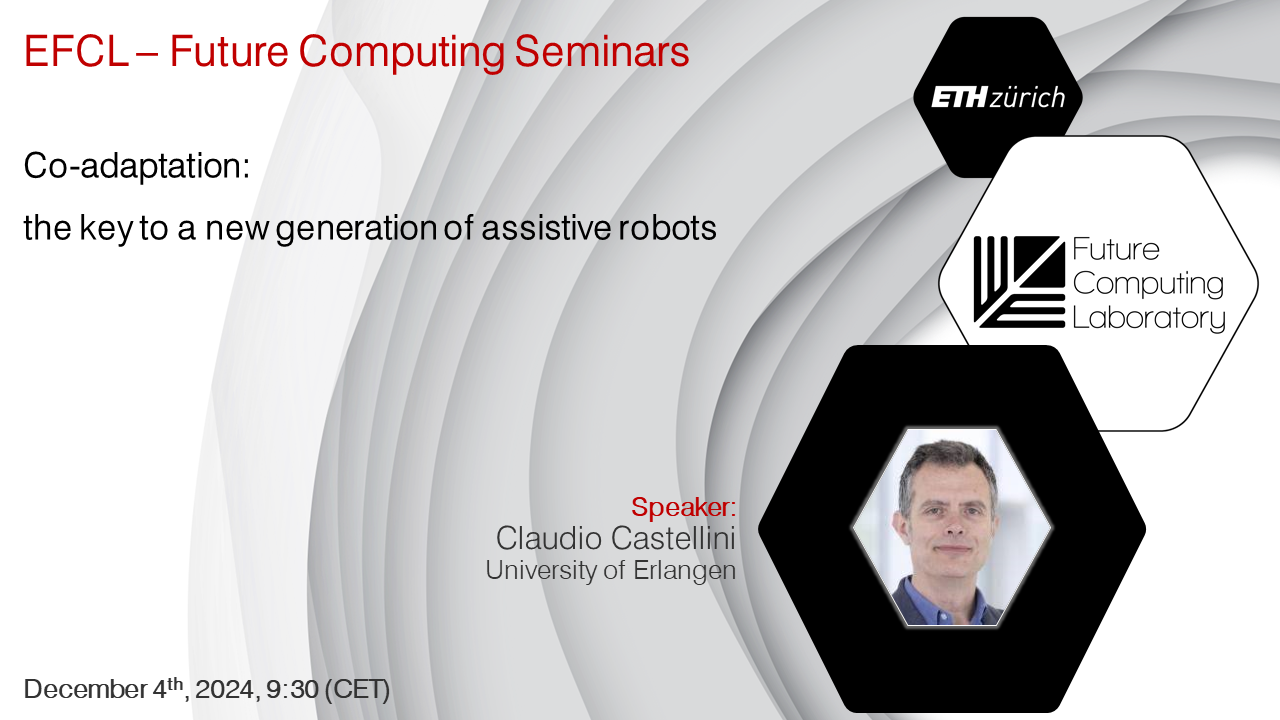Co-adaptation: the key to a new generation of assistive robots

Join us for our upcoming Future Computing Seminar Series
Speaker: Prof. Claudio Castellini, University of Erlangen
Date: December 4th, 2024, 09:30 CET
Where: ETZ E9
Abstract:
Assistive robots (prostheses, exoskeletons, rehab robots, etc.) aim to alleviate the rising demand of care and rehabilitation of patients with motor disorders; yet the state-of-the-art assistive robot is hardly adaptive. In this talk I will propose co-adaptation as the key to improving their acceptance and effectiveness, I will sketch how to measure and foster it and argue that incremental / interactive learning is at its core, calling for a small revolution in machine learning.
Bio:
Claudio Castellini is a researcher in medical robotics, focussing on rehabilitation and assistive robotics, human-machine interfaces and interaction and applied machine learning. He got a Ph.D. in Artificial Intelligence (Mathematical Logic) from the School of Informatics of the University of Edinburgh in 2005, then he turned his attention to robotics for the disabled and spent 4.5 years as a post-doctoral fellow at the Advanced Robotics Laboratory of the University of Genoa. In 2009 he landed at the German Aerospace Center where, as of now, he is a senior researcher at the Institute of Robotics and Mechatronics. Since 2021 he is a professor of Assistive Intelligent Robotics at the Friedrich-Alexander University of Erlangen-Nuremberg, Germany. As of now, he has (co)authored some 150 scientific papers, he is involved in a few research projects and he has served, or is currently serving, for the main conferences and journals of his field of research.